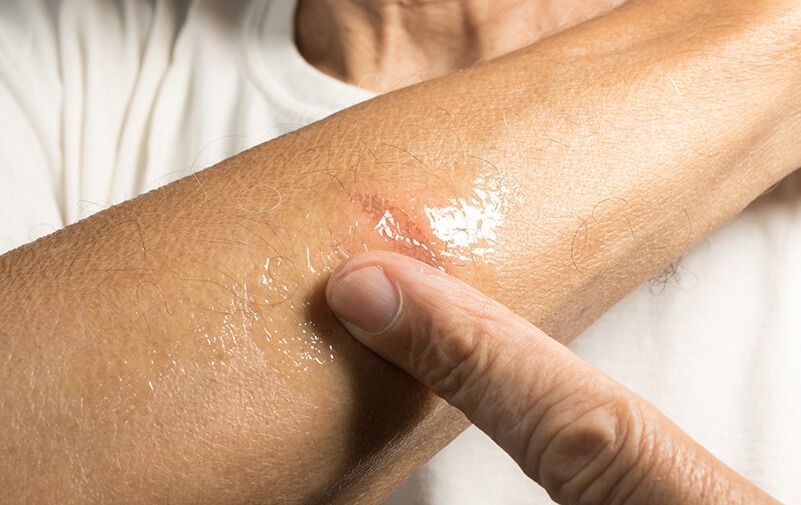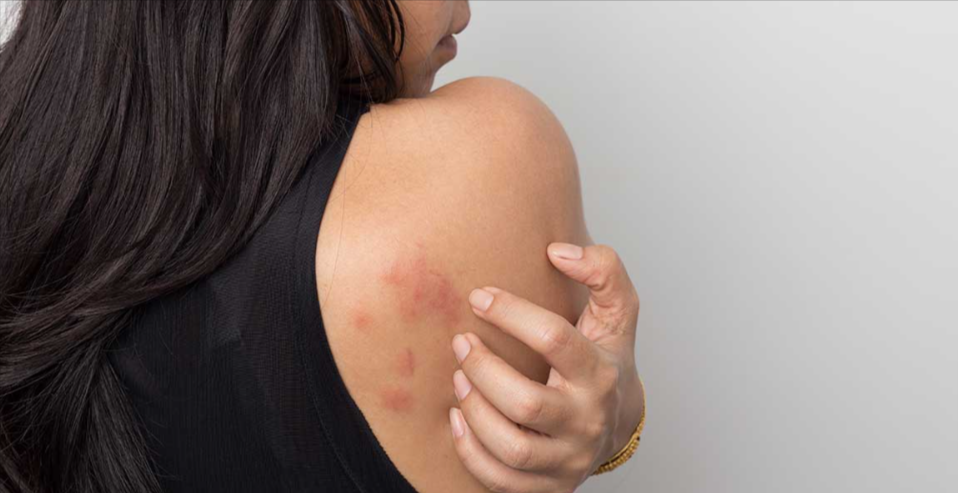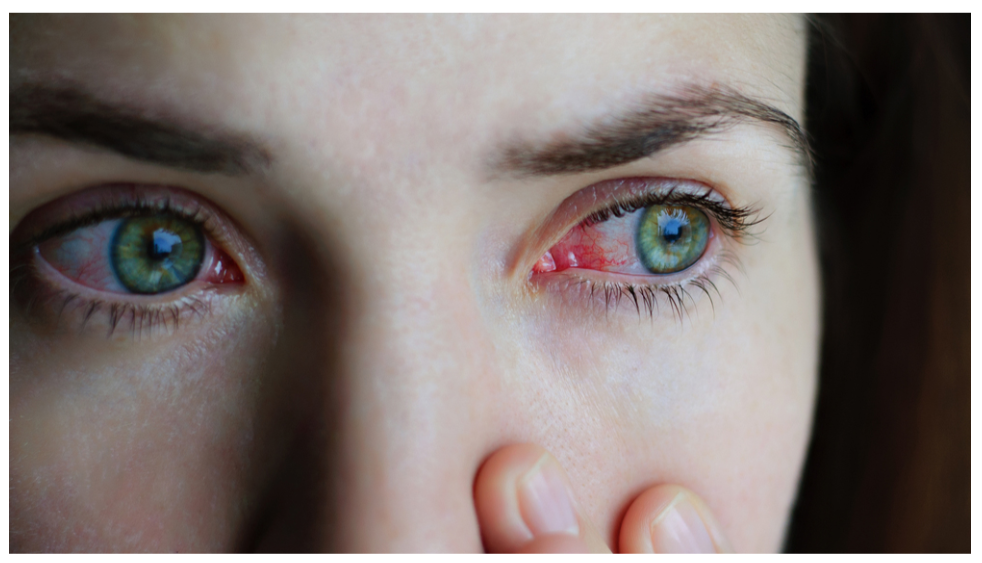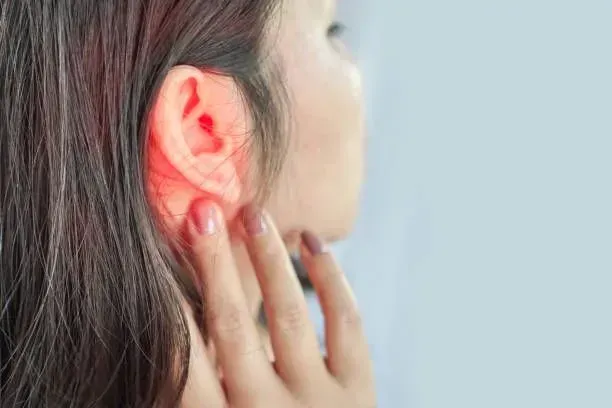Helicobacter Pylori Infection: Symptoms, Causes, and Treatment
As summer approaches, the season for travel and vacation begins. One of the last things you want to deal with on your trip is needing to visit an urgent care for stomach pain. Digestive issues can affect the whole course of your vacation!
One of the most common causes of gastrointestinal upset is a bacterium called Helicobacter pylori, or H. pylori for short. This sneaky bug is found in over half of our bodies without us even knowing it. However, if your immune system weakens, like from the stress of packing your family's bags for your trip, you can develop uncomfortable symptoms. Learn how you contract the H. pylori infection and how it can be treated below to prevent abdominal discomfort all summer long!
What is Helicobacter Pylori?
Helicobacter pylori, or H. pylori, is a bacteria that thrives in the stomach. It can cause painful problems like stomach ulcers and inflammation. H. pylori can be tricky to get rid of because it can survive in the stomach's harsh, acidic environment by producing a special substance that neutralizes the acid around it.
This bacteria is common worldwide and spreads through contaminated food and water or close contact with another infected person. Understanding H. pylori is essential for diagnosing and treating related digestive issues effectively, helping to maintain optimal gastrointestinal health.
Transmission and Risk Factors
Many types of viruses and bacteria spread with only one method of transmission. H. pylori, on the other hand, can spread from person to person by multiple transmission routes, making it often difficult to identify its origin. Specifically, Helicobacter pylori spreads through direct contact with bodily fluids like saliva, vomit, or fecal matter from an infected person. This often occurs in settings with poor sanitation, where the bacteria can be transmitted via contaminated food, water, or surfaces.
Common risk factors include living in crowded conditions, having unclean water supplies, and poor personal hygiene. This means you may be at greater risk of infection if you travel to areas with poor hygiene conditions. People with a family history of H. pylori infection are also at a higher risk. Children are particularly susceptible due to close contact in households and communal living environments. Once you know how it's shared from person to person, you can plan ways to prevent infection.
H. Pylori Infection Prevention
Preventing H. pylori infections involves practicing good hygiene and taking precautions. Always wash your hands thoroughly with soap and hot water. This is important before eating and after using the restroom. Also, ensure food is properly cooked and water is clean and safe to drink.
Avoid sharing eating utensils or drinking from the same containers as others, especially in communal settings. Maintaining a clean living area and addressing any sanitation issues can also reduce the risk of infection. Lastly, regular medical check-ups are important, especially if you have a family history of H. pylori, to catch and address issues early.
Symptoms and Complications of H. Pylori Infection
Helicobacter pylori infection can lead to a range of uncomfortable symptoms and complications. Many people may not exhibit symptoms initially, but they can be quite painful when they do. If you have any of these symptoms, consider contacting a healthcare provider:
● Abdominal Pain: Often a burning sensation in the upper abdomen.
● Bloating: Feeling full even after eating a small amount of food.
● Nausea: Persistent feeling of needing to vomit.
● Frequent Burping: Increased gas and belching.
● Loss of Appetite: Decreased interest in eating.
● Unintentional Weight Loss: Losing weight without trying.
● Vomiting: Sometimes containing blood.
Complications
If you leave an H. pylori infection untreated for too long, it can result in various complications. Some of the most common consequences of a consistent Helicobacter pylori infection include:
● Peptic Ulcers: Open wounds in the stomach or upper part of the small intestine.
● Gastritis: Inflammation of the stomach lining.
● Stomach Cancer: Increased risk of developing gastric cancer.
● MALT Lymphoma: A rare form of stomach cancer associated with mucosa-associated lymphoid tissue.
● Anemia: Low red blood cell count from chronic blood loss due to bleeding ulcers.
Diagnosis
Diagnosing H. pylori infection is required for effective treatment and preventing complications. Several methods are available to confirm the presence of H. pylori in the digestive system and may be done by your local urgent care center.
Diagnostic Tests
● Breath Test: A urea breath test involves drinking a urea solution and breathing into a bag, allowing doctors to detect carbon dioxide changes indicative of H. pylori.
● Stool Test: This test detects H. pylori antigens in a stool sample, providing a non-invasive diagnosis.
● Blood Test: Although less commonly used, a blood test can identify antibodies against H. pylori, indicating a current or past infection.
● Endoscopy: In severe cases, a doctor may perform an upper endoscopy, inserting a thin tube with a camera down the throat to view the stomach lining and take a biopsy for testing.
Early diagnosis is essential to manage symptoms and prevent complications like ulcers and stomach cancer. If you experience persistent stomach discomfort or related symptoms, consult a walk-in urgent care center to get tested and start appropriate treatment.
Treatment Options for Helicobacter Pylori
Effective treatment of Helicobacter pylori infection involves a combination of medications to kill the infection and manage symptoms. The primary approach is antibiotic therapy, typically involving a combination of two antibiotics, such as amoxicillin and clarithromycin. This combination helps prevent bacterial resistance and ensures the bacteria are eliminated.
Alongside antibiotics, proton pump inhibitors (PPIs) like omeprazole or lansoprazole are prescribed to reduce stomach acid, which aids in healing the stomach lining and enhances the effectiveness of the antibiotics.
Alternative treatments can also play a role. Bismuth subsalicylate, the active ingredient in Pepto Bismol, sometimes included in treatment regimens, helps protect the stomach lining and kill bacteria. Probiotics may be recommended to maintain gut health and reduce side effects from antibiotics.
Managing side effects is crucial for the success of the treatment. Adherence to the full course of antibiotics is essential to prevent recurrence and resistance. Dietary adjustments, such as avoiding spicy foods or caffeine and alcohol, can help minimize irritation and support healing. Effective treatment typically lasts 10-14 days and can lead to the complete elimination of H. pylori. Consulting with an urgent care provider ensures a tailored treatment plan for optimal results.
Treat Your H. Pylori Infection
Understanding, diagnosing, and treating Helicobacter pylori is crucial for maintaining optimal digestive health. Recognizing the symptoms, seeking timely diagnosis, and following an effective treatment plan can prevent serious complications like ulcers and stomach cancer.
At UrgiClinic Urgent Care, we are dedicated to providing comprehensive care for all your health needs, including managing H. pylori infections. If you experience persistent stomach discomfort or related symptoms, don't hesitate to reach out to visit us for urgent care services today.








If you believe you have a medical urgent situation, please call 911
Hours: Open 7 Days a Week, from 9 AM to 9 PM
LEGAL LINKS
Quick Links
Contact Us
Phone: (708) 788-5088
Fax: (708) 575-7177
Email: care@urgiclinic.com
Address: 7124 W 83rd St Unit C, Bridgeview, IL 60455
All Rights Reserved | UrgiClinic Urgent Care





